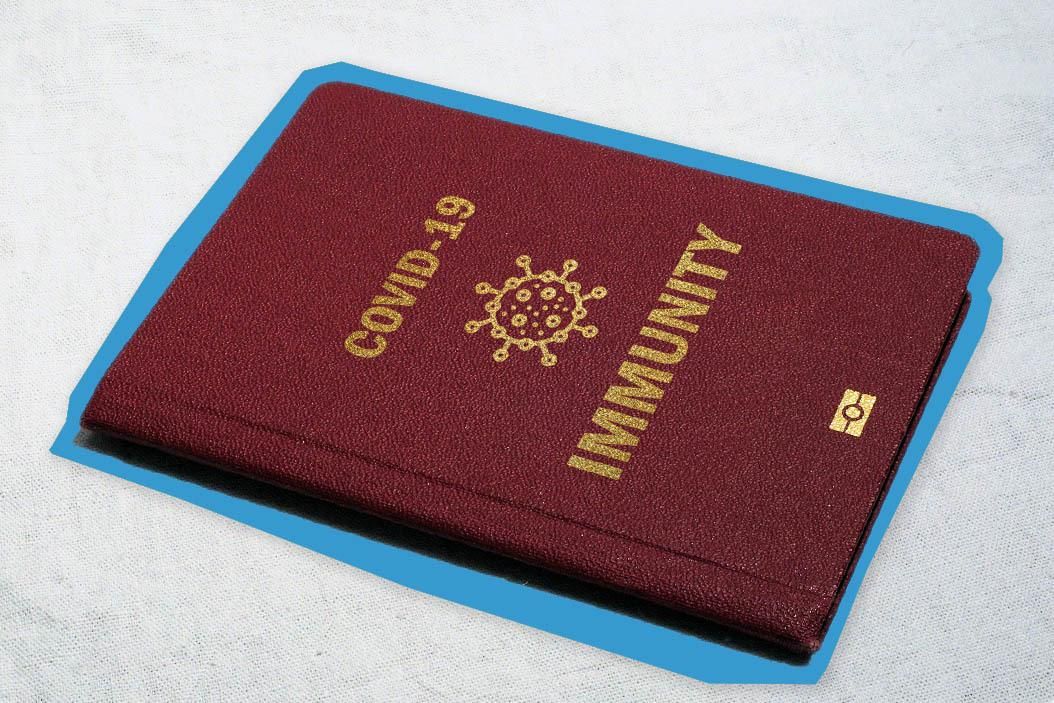January 27, 2021
Pros and cons of vaccine passports: As a growing number of countries roll out COVID vaccines, the World Health Organization has started working on a global "vaccine passport" certification that it hopes will be recognized across the globe. In theory, such a document would exempt global travelers from having to provide negative tests and undergo quarantines upon arrival. But here is where it gets tricky: While countries whose economies are heavily reliant on tourism like Greece are lobbying in favor of the effort so they can get tourists back in their hotels and restaurants, it's still unclear whether vaccinated people, who are protected from getting sick themselves, can transmit the virus to others. If some countries or regions jump the gun and lift restrictions for those with proof of vaccination, it could lead to a potential deluge of infections which would in turn result in fresh lockdowns and more economic turmoil. On the other hand, if vaccines do provide to be a safeguard against disease transmission, a global standard to verify who's gotten the jab could avoid the chaos associated with different nations' medical standards. The WHO has done it before with its famous "yellow card" that documents vaccinations against a range of diseases like rubella and cholera. Will it be able to come up with a paperless version that will be broadly accepted?
Australia takes on Big Tech: In the latest row in the Big Tech world, Google has threatened to cut off search engine access for all Australian users (19 million each month) after a proposed bill would require Google and Facebook to pay a licensing fee to media companies for sharing their content. Facebook followed up by warning it'll block Australian users from posting news stories to its feeds if the bill turns into law. Google says it's willing to negotiate, but that the Australian bill goes too far. Specifically, the tech giant rejects establishing an automatic arbitration model which would allow Australian courts to decide how much Google should pay if it can't reach an agreement directly with a publisher (this would open Google up to infinite financial risks, the company says). The row with Australia is surely a sign of what's to come around the globe. While the EU agreed to a bloc-wide copyright rule in 2019, some individual nations still need to pursue their own additional copyright laws — France recently did so and subsequently struck a deal with Google over licensing fees for content producers. But those who haven't done so yet will be watching the outcome of the messy dispute with Australia very, very closely.
Nigerian military reshuffle: In response to growing pressure to improve Nigeria's rapidly deteriorating security situation, President Muhammadu Buhari, who came to power promising to oversee an era of safety and stability in Nigeria, has taken the bold step of replacing military commanders and the entire defense department. Although he didn't give a reason for the reshuffle, Buhari — a former general who led a military junta that ruled Nigeria in the early 1980s but was elected as a civilian in 2015 — has struggled to make progress on the multiple security crises facing the country. Nigeria is currently suffering a spike in jihadist violence from Boko Haram and Islamic State-affiliated groups, fresh attacks by pirates in the Gulf of Guinea, bloody clashes between Christian farmers and mostly Muslim nomadic herders, and a resurgent separatist movement in Biafra. What's more, Nigeria is still reeling from the popular backlash against police brutality that sparked the #EndSARS protests last October. Interestingly, the new top brass is considerably younger than the previous military leadership, but it remains to be seen whether they can get the job done.More For You
- YouTube
China was largely absent from the core conversations at the 2026 Munich Security Conference. That, says Ian Bremmer, is telling.
Most Popular
- YouTube
At the 2026 Munich Security Conference, Brad Smith announces the launch of the Trusted Tech Alliance, a coalition of global technology leaders, including Microsoft, committing to secure cross-border tech flows, ethical governance, and stronger data protections.
When the US shift from defending the postwar rules-based order to challenging it, what kind of global system emerges? CFR President Michael Froman joins Ian Bremmer on the GZERO World Podcast to discuss the global order under Trump's second term.
TODAY at 12 pm ET: Watch our Global Stage live premiere from the Munich Security Conference
Feb 13, 2026
Tune in today at 12pm ET/6pm CET for the live premiere of our Global Stage from the 2026 Munich Security Conference, where our panel of experts takes aim at the latest global security challenges. NY Times National Security Correspondent David Sanger moderates the discussion with Benedetta Berti, Secretary General, NATO Parliamentary Assembly; Ian Bremmer, President & Co-founder, Eurasia Group & GZERO Media; Dr. Wolfgang Dierker, Global Head of Government Affairs, SAP; and Brad Smith, Vice Chair & President, Microsoft.
© 2025 GZERO Media. All Rights Reserved | A Eurasia Group media company.
